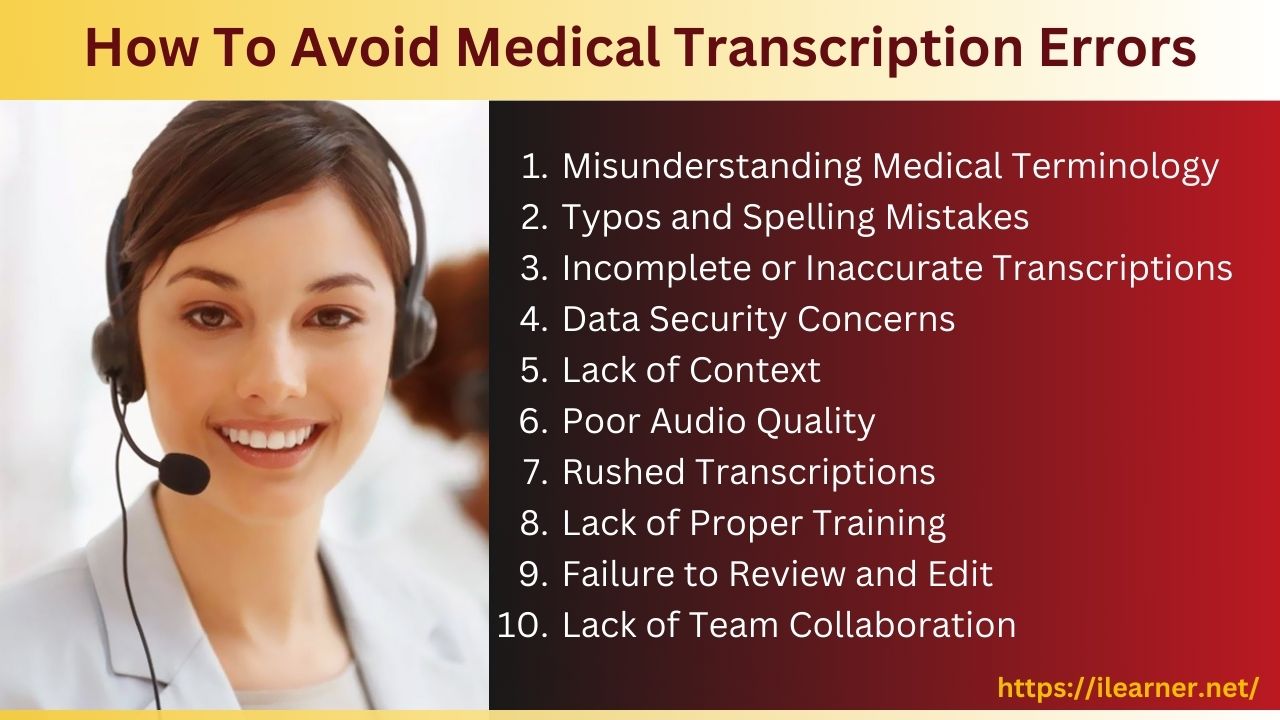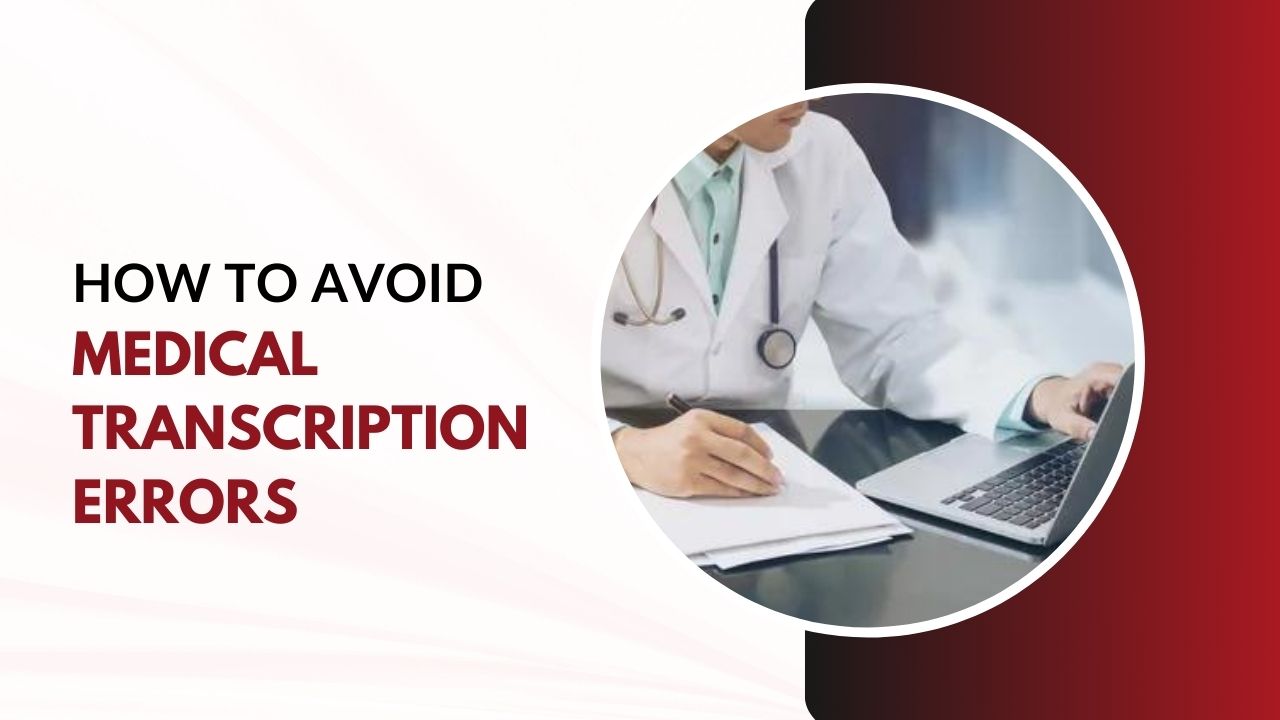Medical transcription is a critical part of healthcare. It involves transcribing spoken medical records into written documents. Accurate medical transcripts are essential for patient care, insurance claims, and research. However, errors in medical transcription can have serious consequences.
In this article, we will discuss ten common medical transcription errors and provide tips on how to prevent them.
How To Avoid Medical Transcription Errors

1. Misunderstanding Medical Terminology
Medical professionals use specialized terminology that can be challenging to understand and transcribe accurately. In fact, medical terminology is known for its complexity, with thousands of unique terms. Errors in transcription can result in misunderstandings and misdiagnoses.
To avoid this error, transcriptionists need comprehensive training in medical terminology. They should stay updated on the latest medical jargon and use reputable medical dictionaries and resources for reference.
2. Typos and Spelling Mistakes
Typos and spelling errors may seem minor, but they can significantly affect the accuracy of medical transcripts. Mistakes in spelling can change the meaning of a term or make the document confusing. To prevent typos and spelling errors, transcriptionists should use spell-check tools, but they should also rely on their own proofreading skills to catch errors that automated tools might miss.
3. Incomplete or Inaccurate Transcriptions
Sometimes, transcriptionists may inadvertently leave out important information or transcribe it inaccurately. This can lead to errors in patient care and insurance claims. To avoid this problem, healthcare providers should communicate clearly, speaking slowly and enunciating words. Transcriptionists should not hesitate to ask for clarification when they are unsure about something.
4. Data Security Concerns
Securing patient data is a paramount concern in healthcare. Inaccurate transcriptions can lead to data breaches, compromising patient confidentiality. To ensure data security, transcriptionists must be well-versed in Health Insurance Portability and Accountability Act (HIPAA) regulations. Following strict privacy protocols and using secure transcription platforms is crucial.
5. Lack of Context
Sometimes, the context of a medical conversation is essential for accurate transcription. Without it, the resulting document may lack critical details. To address this issue, transcriptionists should maintain open lines of communication with healthcare providers. They should not hesitate to ask for context or additional information when needed.
6. Poor Audio Quality
Transcriptionists often work with recorded audio. If the audio quality is poor, it can make transcription challenging and lead to errors. To avoid this issue, healthcare facilities should invest in high-quality recording equipment. Transcriptionists can also use noise-cancellation tools and software to improve audio clarity.
7. Rushed Transcriptions
In the fast-paced healthcare environment, transcriptionists may feel pressured to complete their work quickly. Rushed transcriptions are more likely to contain errors. To counter this problem, healthcare facilities should provide reasonable timeframes for transcription. Transcriptionists should prioritize accuracy over speed to reduce errors.
8. Lack of Proper Training
Medical transcription requires a deep understanding of medical terminology, procedures, and standards. Inadequate training can lead to errors and misunderstandings. To prevent this error, transcriptionists must undergo comprehensive training programs that cover medical terminology and transcription guidelines. Continuous learning and professional development are essential in this field.
9. Failure to Review and Edit
Transcriptionists must review and edit their work to ensure accuracy. Skipping this step can lead to mistakes in the final document. To avoid this error, transcriptionists should allocate time for thorough review and correction. It’s important to ensure that the transcribed document aligns with the audio recording.
10. Lack of Team Collaboration
Effective teamwork is essential in medical transcription. Errors can occur when there is a lack of communication and collaboration between healthcare providers and transcriptionists.
To improve team collaboration, both parties should maintain an open line of communication. Healthcare providers should provide clear dictations and respond to transcriptionists’ inquiries promptly. Transcriptionists, on the other hand, should seek feedback and clarification when necessary.
Conclusion
Medical transcription errors can have serious consequences, including misdiagnoses, compromised patient care, and legal issues. To minimize these errors, healthcare facilities and transcriptionists must work together to prioritize accuracy and effective communication.
With comprehensive training, ongoing education, and strict adherence to privacy regulations, medical transcription can continue to provide reliable and precise records for patient care, research, and insurance claims. Accurate and error-free transcription is a fundamental aspect of delivering quality healthcare services.
Also Read:




